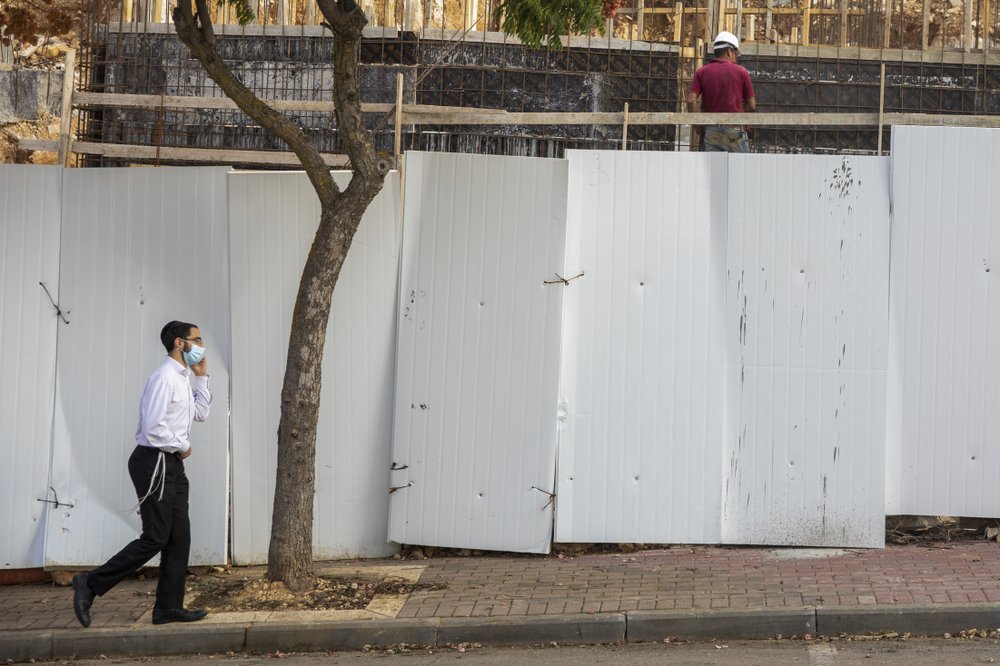President-elect Joe Biden may never forget Ramat Shlomo.
On a visit to Israel in 2010, Biden was caught off guard when authorities announced plans to build hundreds of new homes in the Jerusalem neighborhood of Ramat Shlomo, which is situated across the “Green Line.”
As he held friendly meetings with Israeli officials, Israel’s Interior Ministry approved the construction of 1,600 new apartments in the neighborhood. Netanyahu said at the time that he had been blindsided by the announcement by low-level technocrats and tried to contain the damage at a late-night dinner with Biden.
Nonetheless, Biden issued a harshly worded statement, saying the approvals undermined trust. The incident embarrassed Biden and sparked a diplomatic rift with the Obama administration that never quite healed and the Ramat Shlomo project later became known as “the Biden Plan.”
Biden’s anger resulted in a freeze in construction in east Jerusalem (although Ramat Shlomo is actually located in north Jerusalem) which was lifted in 2016 after Trump became president.
The episode could foreshadow what lies ahead under the Biden administration — with a U.S. president opposed to Israeli construction beyond the Green Line but seemingly limited in his ability to stop it, particularly when dealing with a changing Middle East and preoccupied by domestic priorities.
The coming two months provide a key test for Prime Minister Binyamin Netanyahu on the matter. The prime minister may seek to take advantage of the final days of the settlement-friendly Trump administration and push through a flurry of last-minute construction projects. But doing so could antagonize the incoming administration.
Both supporters and critics expect Netanyahu to proceed with caution. With the Biden administration expected to re-engage with Iran over its nuclear program, Netanyahu’s top security concern, he seems unlikely to pick a fight with the president-elect. Netanyahu’s office did not respond to a request for comment.
Martin Indyk, a former U.S. peace negotiator during the Clinton and Obama administrations, said the Israeli-Palestinian conflict is no longer a “vital national interest” for Washington and that he did not expect Biden to make it a priority. Nonetheless, he said Biden still has a strong familiarity with the region.
“I don’t think he’s going to want to have a fight over ‘settlements.’ But if Bibi makes it an issue, then there will be a problem there,” said Indyk, using Netanyahu’s nickname.
“The No. 1 issue for Israel is Iran. Not the ‘settlements,’ not the peace process, not the Palestinians,” said Eytan Gilboa, an expert on U.S.-Israel relations. “Anything that could disrupt collaboration with the United States on Iran is going to be off.”
Trump has delivered a number of diplomatic gifts to Netanyahu, including the withdrawal of the U.S. from the international nuclear deal with Iran, recognition of Jerusalem as Israel’s capital and moving the U.S. Embassy there. Trump recently brokered three normalization deals between Israel and Arab countries, shattering a longstanding position by Arab states that have traditionally withheld recognizing Israel until it made major concessions to the Palestinians.
In a break from his Republican and Democratic predecessors, Trump also has taken a much softer line toward the “settlements.” Surrounded by advisers with close ties to the settler movement, Trump’s administration declared last year that it did not consider the settlements to be illegal under international law. Then, in January, he unveiled a Mideast plan that envisions placing parts of the West Bank, including all of the settlements, under permanent Israeli control.
Israel this year appeared poised to begin annexing West Bank territory under the Trump plan but was dissuaded as part of the deal establishing ties with the United Arab Emirates. Nonetheless, Israel has ramped up plans to build thousands of new homes throughout the West Bank. Anti-settlement monitoring groups expect additional settlement approvals in the West Bank and east Jerusalem before the end of Trump’s term.
Biden, while claiming to have “ironclad” support for Israel, has already indicated he will reverse many of Trump’s decisions. He has come out against unilateral annexation and supports a two-state solution between Israel and the Palestinians. Although he has said he will not move the embassy back to Tel Aviv, he is expected to reopen the U.S. Consulate in Jerusalem that managed relations with the Palestinians and restore hundreds of millions of dollars of aid to the Palestinians that Trump cut off.
(YWN Israel Desk – Jerusalem & AP)












4 Responses
Pretty sure Joe Biden already forgot Ramat Shlomo, what office he’s running for, and his childrens’ names.
The modern-day Democrats openly sympathize for terrorists. We better pray that we survive a possible Biden take over of our land and our people.
No, it can’t be! Biden is Israel’s best friend, just ask the Democrats on this site!
With friends like Biden who needs enemies
Biden is NOT yet president-elect. Even if he ends up winning, he will not be president-elect until Dec 14. And the result is far from certain.